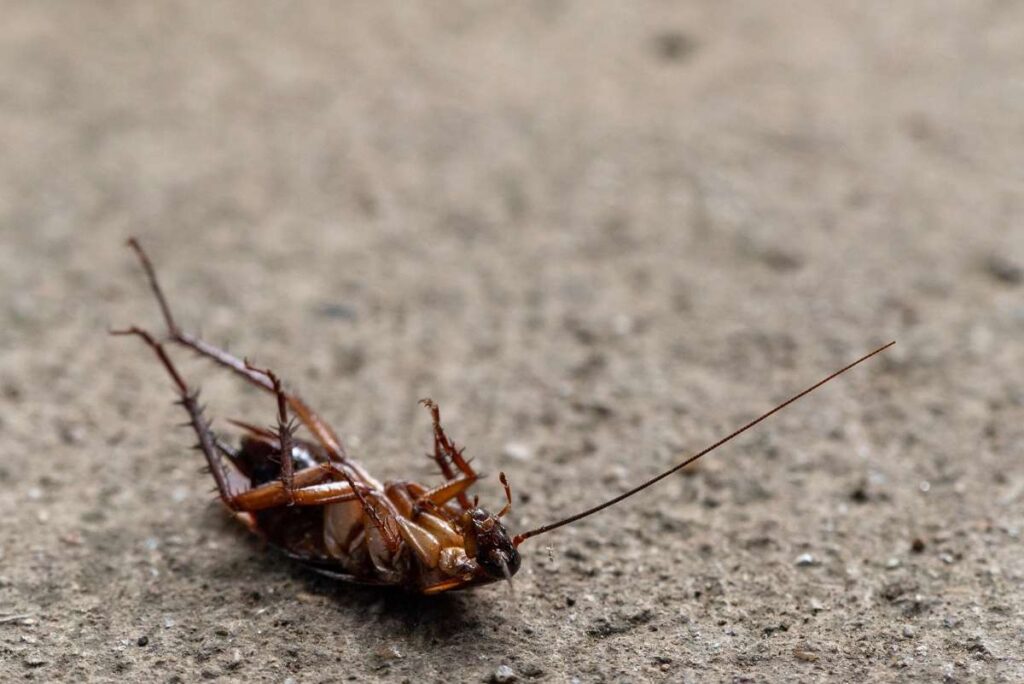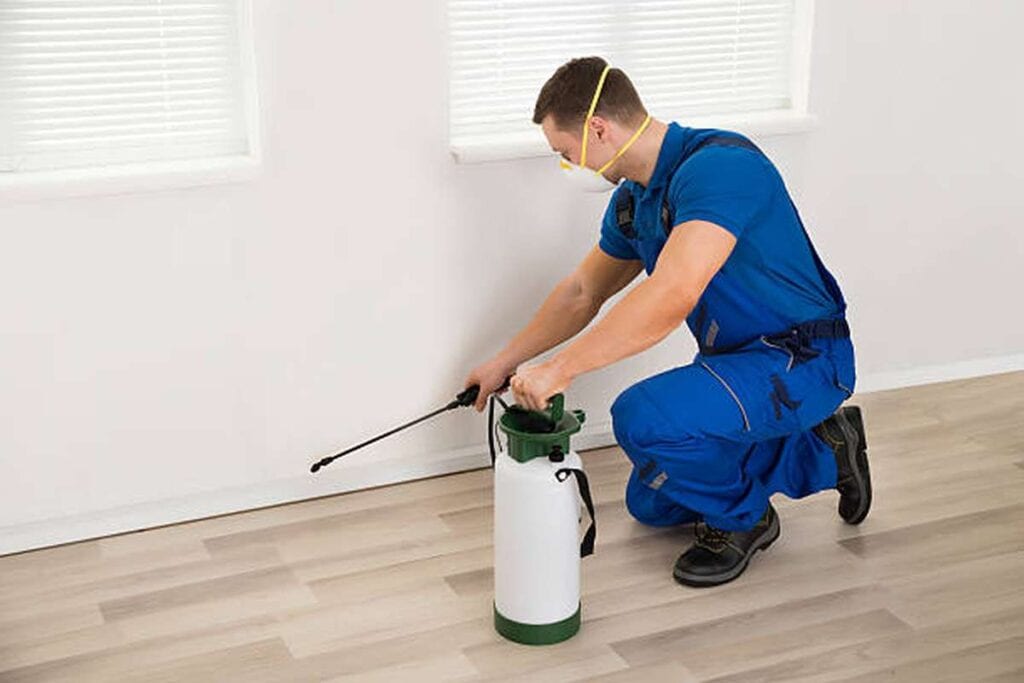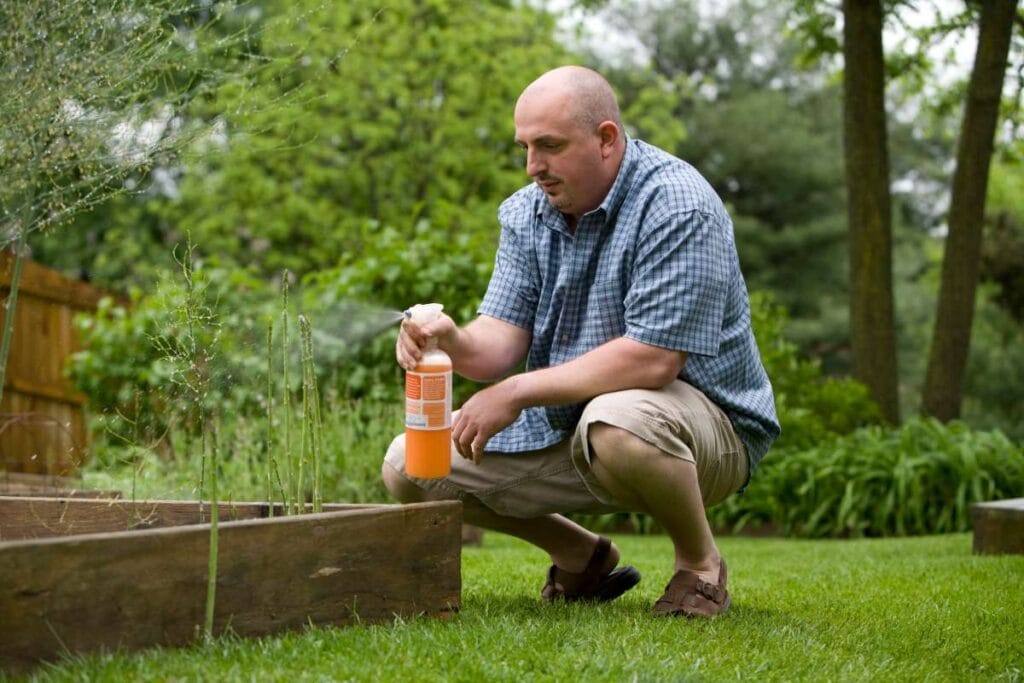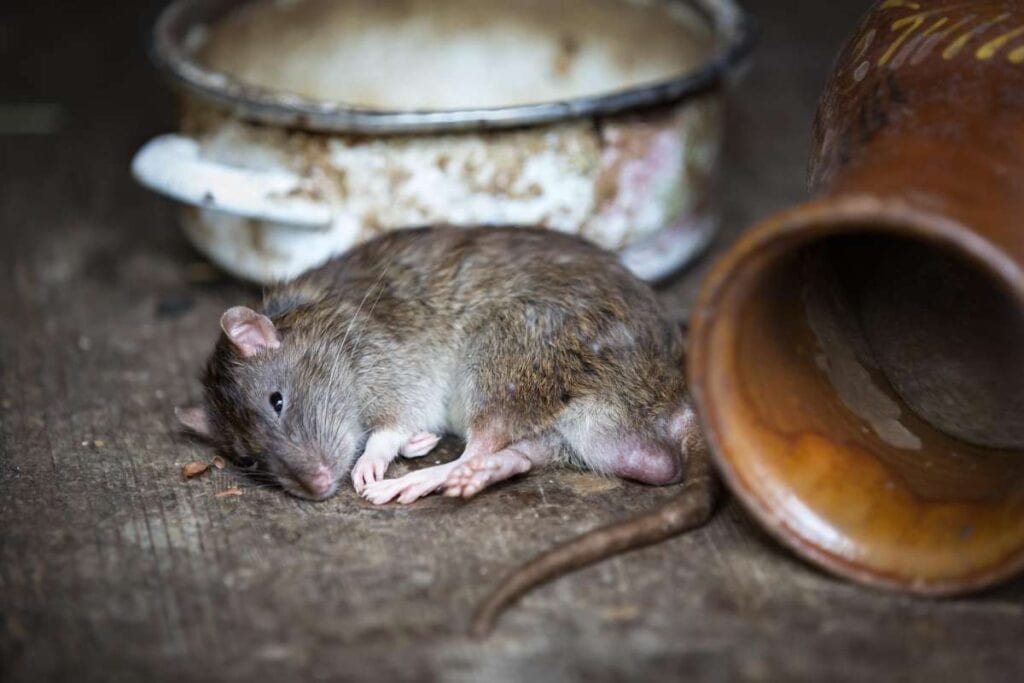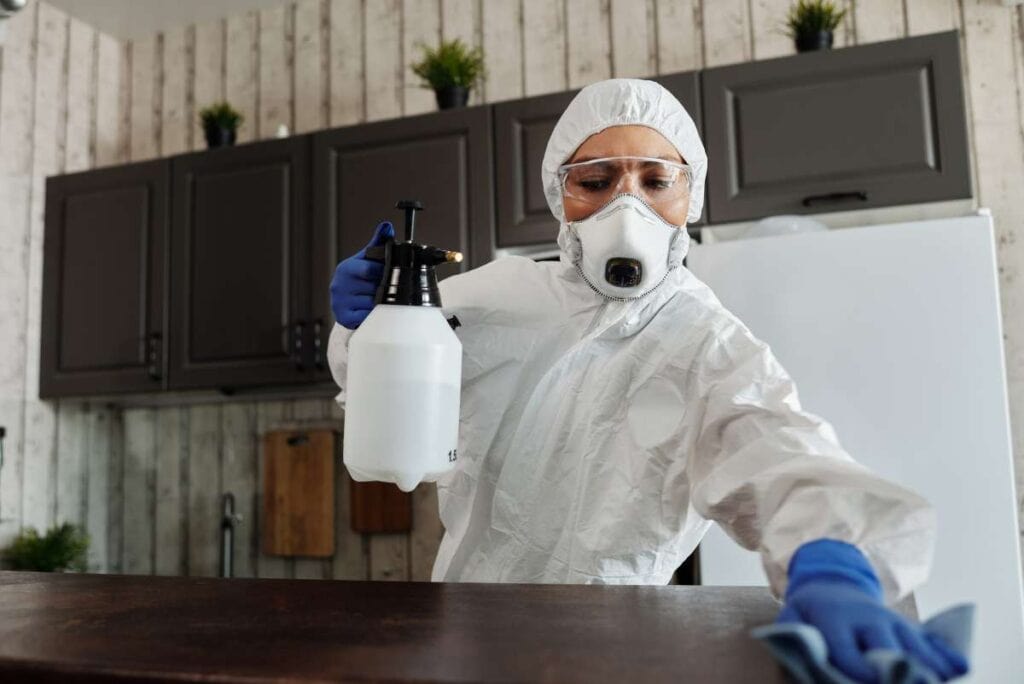Pests are a frequent source of frustration for homeowners, and it can be challenging to get rid of them. You can home pest-free in a variety of ways, such as by making use of insecticides, traps, and other kinds of deterrents.
Even if you have a deep-seated affection for all kinds of animals, it's likely that you wouldn't want any unwanted guests in your house. Nobody wants to deal with unwanted pests and creepy crawlies in their home, regardless of whether the unwanted guests are insects, rodents, or something else. Even though there is a myriad of possible procedures for pest control that can be used nowadays, prevention is always preferable to treatment. Taking preventative action is the most effective approach to shield yourself from the dangers of an infestation, which can spare you a great deal of anguish in the long run.
You may reduce the likelihood of an infestation by taking preventative steps against pests, whether you are moving into an existing property or building a new one from the ground up. There are a number of pest control methods you can take.
In this post, we'll go over some of the most successful strategies used for exterminating pests and avoiding further infestations in the future.
FAQs About Pest Control
Bugs can't be kept out of your home if you don't seal up the entryways. During the warmer months, you can protect yourself from insects by installing screens on your windows and other openings. Furthermore, you can do this by cleaning your foundation, eliminating clutter, and keeping your rubbish in the right places. If you've tried everything on this list and the insect problem persists, it's time to call in the pros for assistance.
Pest-proofing your home can be done in a variety of ways. Taking care of your yard, installing window screens, and keeping your garbage in the right containers are the most basic steps you can do. Cracks can be fixed, and doors and pipe openings can be sealed.
Even the tiniest insects will be kept out of your home by installing a screen with a mesh size of 20 or smaller over any windows that receive direct sunlight during the warmer months. Screens that may already exist should be inspected for damage and any holes should be patched with the additional screen.
Encouraging natural predators to reside on or visit your property is one of the finest methods to organically maintain a pest-free home. Small insects can be a problem if there aren't enough birds and bats around, so it's a good idea to create a habitat for them by planting trees, bushes, and flowers that they'll be drawn to.
A combination of half apple cider vinegar (although normal vinegar works just as well) and half water in a spray bottle works perfectly to repel those pests. This concoction can be sprayed around the perimeter of your home, on the legs of tables that have food served on them or even around a screen house or tent.
Tips to Keep Your Home Pest-Free
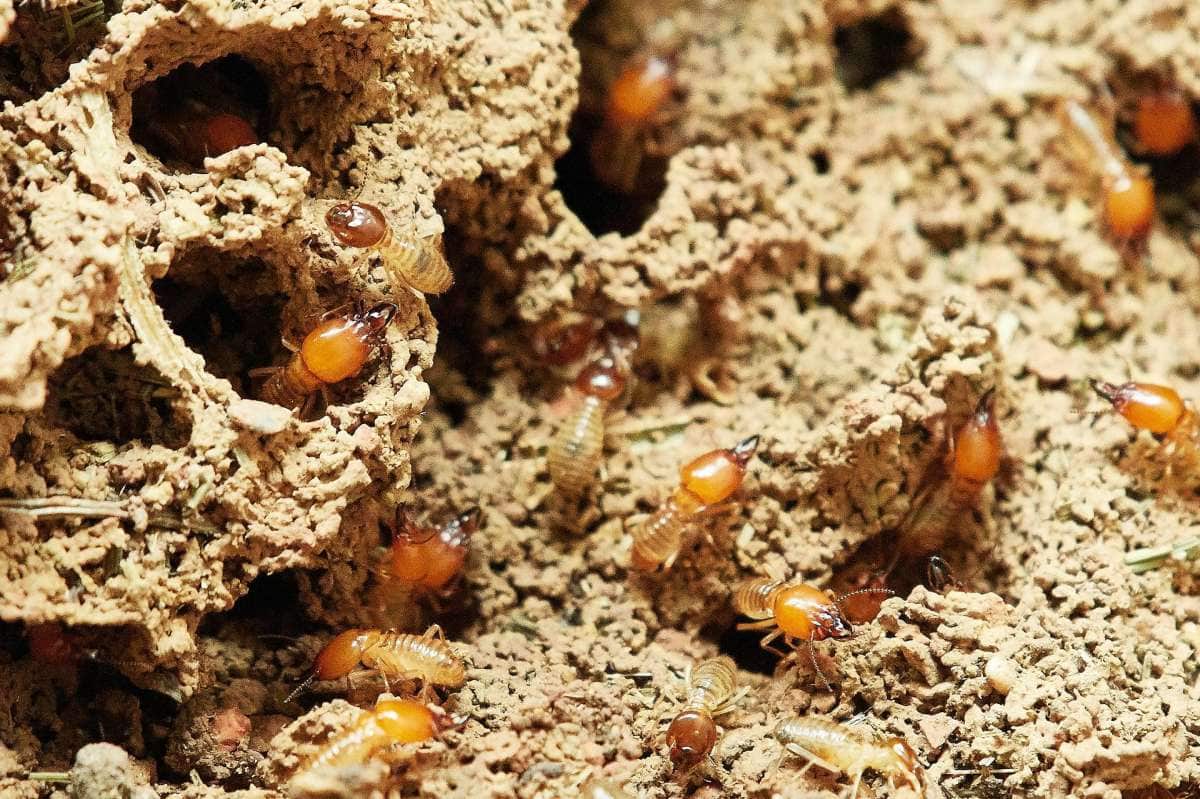
In order to exist, insects, like people, require food, water, and a safe place to live.
You may lessen the likelihood that insects will make your home their permanent abode by removing the sources of their food and clearing out the places that are most attractive to them as hiding places.
Keeping bugs outside is, without a doubt, the most effective method for preventing infestations. In order to accomplish this, you will need to caulk any holes or cracks in the exterior of your house.
You may significantly enhance your chances of not having any problems with insects in your home by closing off fewer points of access that could potentially be used by them.
Locate and Block Any Potential Entry Points.
You should perform a thorough inspection of the walls and foundations to look for any fractures, holes, or other crevices that could serve as entryways for unwanted pests.
Keep in mind that rodents and insects can all squeeze through very small openings, even if it seems unlikely that they might do so.
Shut any potential access points using plaster, cement, hardware cloth, caulk, or steel wool if you find any. If you do find any potential entry points, seal them up.
During the assessment of both your home and its pests, you should also make sure to:
- Make sure the garage door's bottom is in good repair and that it's shutting securely.
- Installing a chimney cover will prevent unwanted visitors like animals from entering your home.
- Inspect the screens of your vents as well as the joints in your doors and windows for any undesirable openings, and if you find any, be sure to close them off as required.
- Check for any holes in the cable that could be big enough for pests to enter.
- It is important to keep insects, ants, and other termites away from timber door frames and window casings by ensuring that they are raised above the surrounding soil.
In addition to the aforementioned, you should thoroughly inspect any used furniture for any kind of vermin, especially termites and bed bugs.
Build Up Your Supply of Essential Oils
Essential oils are your most reliable allies when it comes to the use of natural methods to get rid of pests. Because of their aversion to the potent odours that oils and herbs give out, most insects will avoid coming into contact with them.
In a spray bottle, combine approximately 25 drops of each essential oil with one cup of water or spirit, and then spritz the mixture generously all over the house.
The most common pest repellents include peppermint, eucalyptus oil, lemongrass, tea tree oil, and lavender oil. These can be used to ward off insects such as ticks, fleas, ants, and mosquitoes. Eucalyptus oil is also a popular choice.
Put in Screens
When it comes to bringing in clean air, many households rely solely on natural ventilation, which occurs when doors and windows are opened. During the sweltering and muggy days of summer, this might be an especially alluring option.
Unfortunately, summer is also the time of year when your home is most likely to be invaded by pests such as mosquitoes, fleas, and other insects.
Installing screens in your windows and doors enables you to have the sensation of breathing in fresh air without having to deal with the nuisance of bugs.
Select a screen with a mesh size of 20 or finer if you want to keep out the majority of typical home pests.
The installation of a screen is not particularly difficult and requires only fundamental equipment.
Keep in mind that insects can also enter your home through holes or rips in the screens that are already there.
To reattach the broken wires, you could try to use a screwdriver or a pair of scissors. To prevent pests from entering your home, just cover the hole with a layer of clear nail paint or household cement.
If the screen has merely become detached from the frame along with one side or one of the corners, you can reconnect it to the frame by using a splining tool for aluminium frames or staples for wood frames.
Get the Outsides of Your Home Organized and Keep It That Way
The most efficient approaches to the management of pests in homes do not begin and end inside the structure; rather, they extend outside, covering not only the back and front yards but also the garden.
In addition to protecting the hard work you've put into your landscaping from being undone by pests, the following garden pest control tactics can stop rodents and other small animals from taking over your home.
Prune the Bushes and Trees
To prevent damage to the facade, roof, or gutters of the house, any bushes or trees that are in near vicinity to the structure itself should have their branches chopped back.
If you are going to plant the garden yourself, you should make sure that the plants and bushes are placed a safe distance away from your house so that animals won't be able to use them as a way to get onto your land.
Ensure that Your Gardening Equipment are Cleaned
Avoid attracting unwanted pests by keeping your bird feeder away from your home and promptly cleaning up any dropped food scraps.
In a similar vein, you should always check to see that the lid of your garbage can is securely fastened and keep any wood stacks at least a few feet away from the base of your home.
Additionally, it is essential to do routine maintenance on drainages, such as pipes, drains, and gutters. To ensure they are effective in their roles, you must ensure that they are kept clear of debris.
Even when it's not being used, a pool should always be chlorinated and filtered if it has one.
If you want to prevent mosquitoes from hatching their eggs in your fountains or birdbaths, you should change the water in them at least twice a week.
Be sure to clear away any heaps of debris or leaves that may have accumulated while you were working in your yard.
Insects have found that these spaces provide the ideal conditions for them to hide and multiply, so laying the groundwork for an infestation that may be difficult to eradicate.
Reduce the Amount of Water You Use
It is important to remember not to over-mulch your garden because an excess of moisture can be harmful to the plants and attract unwanted bugs.
Termites and bugs are drawn to areas with high moisture levels, and during the warmer months, areas with standing water can become a potential source of infection and other types of pests.
Fix the Fractures.
It is not hard to understand that bugs, many of which are minuscule in size, can enter a property through gaps that are practically undetectable to the homeowner because of the small size of these cracks and holes.
Because of this, caulking the crevices on the exterior of your property might be one of the most effective ways to protect it from pests.
If a pencil can fit into a crack or fissure, then a juvenile mouse and an infinite stream of insects can also fit through it. Consider this a good general principle to keep in mind.
To get started, take a close look around the outside of your house and see what you can find.
Look for areas of the siding that are damaged or missing, gaps in the foundation, brick that is loose or crumbling, and wood that has decayed.
When you pay attention to the number of openings you notice, you could be surprised by how open and inviting your home actually is.
Use cement or concrete to fix foundations and brick walls to prevent pests from entering the home.
Remove any bricks that are broken and replace them with new ones, then fill the crevices with mortar. Repair or replace any pieces of the siding or cladding that are damaged, as well as any wood or trim that has rotted.
Pay special attention to the roof line since this is a common location for bees and wasps to establish their nests.
If your fascia board or soffit has any holes or gaps, you run the risk of having a deadly encounter with a stinging insect inside of your home.
Take the time to appreciate the marvellous capabilities of caulk so that you may effectively seal your property and repair any little cracks you may find.
Maintain a Spotless Dwelling
Keeping your house clean is an excellent strategy to lessen the likelihood of bug invasions and boost your level of satisfaction with your living situation. Keep up with routine home maintenance and preventative measures by doing things like:
- Keeping food at eye level in the pantry helps you keep track of what you have stored inside.
- Put all food (human and animal) in airtight metal or plastic containers.
- Investing in a high-quality, well-fitting lidded trash can
- Maintaining a neat and orderly closet is a must.
- Make sure there is no room around your appliances, wiring, air conditioners, pipes, and other penetrations of your walls.
You should immediately remove all debris and materials that could serve as a harborage for pests after moving into a newly remodelled or newly constructed home.
You should also enquire with your new neighbours about any pest issues they may be experiencing.
Methods of Pest Control Derived From Nature

Plants that emit a strong odour that drives pests away, such as citronella, mint, lemongrass, and tea tree, can be placed near the front door or any windows that lead outside. This will prevent pests from entering the residence.
Mix one-fourth of a teaspoon of an essential oil, such as eucalyptus oil or peppermint oil, into one cup of water. The next step is to transfer the concoction to a spray bottle, and then use it to mist the interior and exterior of the house in order to get rid of flies, mosquitoes, and ants.
Keep the windows and entryways of the house open on a regular basis to ensure that there is sufficient ventilation throughout the home and to prevent the multiplication of any unwelcome insects.
A solution can be made by combining vinegar and water in proportions that are equal. In order to keep ants and flies at bay, wipe off surfaces such as counters, closets, and other areas.
Additional Tips on Keeping Your House Pest-Free With Natural Home Remedies
Here's what you can do when you've successfully eradicated bugs utilising our advice.
- Pouring vinegar or boiling water down the drain of your kitchen sink once a week is a good way to keep the drains clean and free of clogs.
- Always ensure that the lids are securely fastened and the cans are airtight.
- Make sure the kitchen counter is spotless at all times, and under no circumstances should food be left out or uncovered.
- Every evening, wipe down the counter with some soapy water. To sterilise the area, use a pinch or two of lime in the mixture.
- After each course, thoroughly sweep the floor to remove any crumbs that may have fallen.
- In order to control the pests from entering your home, seal off any potential access points, sterilise any gaps or holes, and perform routine inspections of your storage areas, particularly your cabinets and closets.
- If there is any water that has sat still in or around your home for an extended period of time, you should either drain it or coat the area with oil. Mosquitoes require standing water as a breeding environment, and pouring oil on the mosquito larvae will prevent them from being able to breathe.
Keep your home free of vermin by putting an end to any subsequent infestations of pests as soon as they appear.
Combating Pests Needs Unwavering Focus and Awareness
Keeping insects, rats, and other pests at bay is a problem that every homeowner will have to deal with at some point.
To our great relief, preventing pests in our homes can be easily accomplished by performing routine maintenance, exercising foresight, and making thorough preparations.
In the extremely unlikely event that your plan for the management of pest control fails, there are various other methods for dealing with an infestation; however, these options require that you catch the infestation in a timely manner.
If you are seeking a pest control professional who can help you get rid of those annoying creatures once and for all, All Pests is the company for you.
All Pests offers a professional and affordable service that will rid your home or office of any unwanted pests.
So whether it's ants, spiders, cockroaches, or any other type of pest, we can help!
We understand that dealing with pests can be stressful and inconvenient. That's why we offer a range of services that are designed to meet your needs and budget.
Call 0409 523 029 to find out more about our services.
Conclusion
Pests are a common cause of annoyance for homeowners, and it is not always easy to get rid of them.
You can keep unwanted pests out of your home in a number of different ways, such as by using insecticides, traps, and various other types of deterrents.
Eliminating outdoor habitats for insects is without a doubt the strategy that yields the best results for preventing infestations.
When it comes to getting rid of insects and other pests using natural means, essential oils are the most dependable allies you could ask for.
Insects like ticks, fleas, ants, and mosquitoes won't be able to get a hold of you when you use these.
The most effective strategies for controlling pests in homes do not begin and end inside the structure, as this would defeat the purpose of the strategy.
Instead, they spill out into the exterior space, encompassing not only the rear and front yards but also the garden as well.
The following methods of garden pest control can prevent rodents and other small animals from taking over your home and eating all of your food.
It's possible that sealing the cracks and crevices on the outside of your home with caulk is one of the most efficient ways to keep insects and rodents out.
Fix or replace any damaged sections of the siding or cladding, as well as any wood or trim that has deteriorated due to rot.
To protect against pests, foundations and brick walls should be repaired with cement or concrete.
Organizing your pantry so that food is stored at eye level makes it easier to keep track of what you have stashed inside.
Check to see that there is no space around your home's appliances, wiring, air conditioners, pipes, and any other openings in the walls.
To ensure that your home is as watertight as possible, it is important that you devote some time to learning about the amazing capabilities of caulk.
Every homeowner will, at some point in their life, be confronted with the challenge of warding off unwanted guests, such as rodents, insects, and other vermin.
To our great relief, preventing pests in our homes can be easily achieved through the practise of routine maintenance, the application of foresight, and the completion of thorough preparations.
Content Summary
- You can keep unwanted pests out of your home in a number of different ways, such as by using insecticides, traps, and various other types of deterrents.
- Even though there are a lot of different treatments for pest control that can be used these days, it is still best to avoid having a problem in the first place rather than trying to fix it.
- The best way to protect yourself from the risks of an infestation is to take preventative measures, which can save you a significant amount of mental anguish in the long run.
- Taking preventative measures against pests is something that you should do regardless of whether you are moving into an existing property or building a new one from the ground up. This will help lower the risk of an infestation occurring.
- You have a choice between a few different approaches when it comes to controlling pests.
- Eliminating outdoor habitats for insects is without a doubt the strategy that yields the best results for preventing infestations.
- Caulk any gaps or cracks in the exterior of your home that you find, as this will allow you to accomplish what needs to be done.
- If you discover any potential entry points, you should seal them off with plaster, cement, hardware cloth, caulk, or steel wool as soon as possible.
- If you discover any possible entry points, make sure to block them off.
- By putting in a chimney cover, you can keep out uninvited guests like animals who might otherwise enter your home.
- Check the joints in your doors and windows as well as the screens of your vents for any unwanted openings, and if you find any, make sure to close them off as required. Also, check the vents' screens for any openings.
- Check to see if there are any holes in the cable that are big enough for unwanted guests to get in.
- When it comes to getting rid of insects and other pests using natural means, essential oils are the most dependable allies you could ask for.
- Peppermint, eucalyptus oil, lemongrass, tea tree oil, and lavender oil are some of the most common essential oils used as insect repellents.
- The summer season is, alas, also the time of year when unwanted guests, such as mosquitoes, fleas, and various other insects, are most likely to make their way into your home.
- You can enjoy the sensation of breathing in fresh air without having to deal with the annoyance of bugs by installing screens in your windows and doors. Screens provide this benefit.
- The installation of a screen is not overly challenging and calls for only the most fundamental of tools and supplies.
- It is important to remember that insects can also enter your home through holes or rips that are already present in the screens that are installed.
- The following methods of garden pest control can prevent rodents and other small animals from taking over your home in addition to protecting the hard work you've put into your landscaping from being undone by pests and preventing your hard work from being undone by pests.
- Keep unwanted pests at bay by positioning your bird feeder some distance from your house and promptly cleaning up any food scraps that may have fallen to the ground.
- Make it a point to clean up any large piles of trash or dead leaves that may have accumulated in your yard as a result of the work that you did there.
- It is essential to keep in mind that you should not over-mulch your garden because an excessive amount of moisture can be detrimental to the plants and attract pests that should be avoided.
- Caulking the cracks and crevices that are found on the exterior of your property could be one of the most effective ways to protect it from being invaded by insects and other pests.
- To get started, walk around the exterior of your home and look carefully for anything interesting that catches your eye.
- To stop insects and rodents from entering the house, foundations and brick walls should be patched with cement or concrete.
- You run the risk of having a potentially fatal encounter with a stinging insect inside of your home if either your fascia board or your soffit has any holes or gaps in it.
- Maintaining a clean home is an excellent strategy that can reduce the risk of having your living space invaded by insects and increase the level of contentment you feel regarding your living conditions.
- Maintaining your home on a regular basis and taking preventative action includes things like the following:
- Organizing your pantry so that food is stored at eye level makes it easier to keep track of what you have stashed inside.
- In addition to this, you need to talk to your new neighbours about any problems with pests that they might be having.
- In order to get rid of flies, mosquitoes, and ants, the next step is to pour the mixture into a spray bottle and then use it to mist the interior as well as the exterior of the house.
- Keep the doors and windows of the house open on a regular basis to ensure that there is adequate ventilation throughout the home and to stop any unwanted insects from reproducing.
- A good way to keep the drains clean and clear of clogs in your kitchen sink is to perform maintenance on them once a week by pouring boiling water or vinegar down the drain.
- The kitchen counter should be wiped down with some soapy water every evening.
- In order to keep rodents and other pests out of your home, you should eliminate any new infestations of insects and other animals as soon as they appear.
- At some point or another, every homeowner will be faced with the challenge of ridding their home of unwanted critters such as rats, insects, and other vermin.

